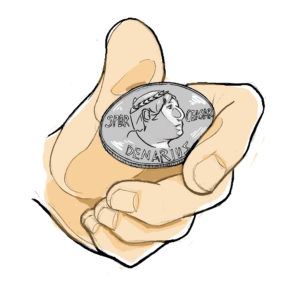Bill Belew has raised 2 bi-cultural kids, now 34 and 30. And he and his wife are now parenting a 3rd, Mia, who is 8.
Every dad was one day a child with his dad and then became a dad, we all know about it and we also know that we inherit a lot from our dads. But my point of saying this was meant to let you know that it all depends on our father , how they had taken the parenthood issue and passed it from their dads to their children. All father’s teach their child to be financially independent as they grow towards their adulthood. The following topic taken here will be and exact example for every father to be a good financial dad and let their children know the value of money. The following topic is taken from a father and how he want’s his children know the value of money so as to grow in a good manner in their future lives. This not only relates to him but to every single dad out there .
The most precious moment of my day is walking in the door and hearing my boys racing to the door to see who can be the first to jump into my arms. Wow, what a feeling! Yes my boys are at the age where me coming home is still a cool thing, and I’m sure that will change over the years as it did for me and my father. Still today, I embrace excitedly some of the financial principles my father instilled in me and I smile each time I remember his wisdom.
The biggest principle he taught me is to never spend more than I earn.
Simple. To the point. Not so easy. We live in a world today that demands we please ourselves, our spouses, our children, and our image. It’s a challenge to walk into Target or WalMart today and get through the store without your children looking at you with hopeful eyes that they might get something “special”…something that quickly finds its way to the bottom of the toy box. But how do we say no to that look, and better yet how do we teach them the value of an earned dollar and the power that it has to control us or help us?
Today I want to unwrap that power of a dollar and how we can teach that to our children. It’s invaluable to know the difference between a need and a want and talking with our children in simple economic principles. A need is food, shelter, and clothing. Moving forward from that… do we buy ramen noodles for dinner, or do we go to the finest restaurant in town? Do we rent a small apartment or do we live in a mansion on the water? Do we shop at Salvation Army or do we go to the finest clothiers in the fancy shopping center? Help your children define in needs and wants how to know what is prudent and what isn’t is extremely important. Thinking through that from my father’s advice, it’s all based on your income. You make a little and you live on less. You make a lot and you live on less. Either way there is distance between your expense and income, and that distance is in your favor.
Practical ways to help your children understand your thought process when you purchase things is a really fun exercise. Surprisingly you start making better financial decisions when you have to justify it to your children. Say you are at McDonalds and you are trying to decide between the happy meal and the value meal and you explain that by ordering three items off the value meal (value fries, cheeseburger, and small drink) for $3 versus spending $4 on the happy meal, you have the power of another dollar still in your pocket. The next logical question is what is the power of that dollar!
It still amazes me the time value of money. Albert Einstein referred to compound interest as the eighth wonder of the world and it truly is amazing. Realize for a second that a dollar invested today is worth thirty two dollars just thirty-five years from now. (The average rate of return in the market is about 7% over that time period). I know it is not an easy thing to tell your son or daughter that you aren’t getting a happy meal with a toy, but if you help them understand that by you saving that one dollar and setting it aside later for them that when they are 40 it will be $32 or when they are 75 it’s $4,096. Truly a wonder. Just imagine if you didn’t go to McDonald’s and you got the ramen noodles!
In summary there are really two thoughts. Spend less than you make and save the difference. If you do that you’ll find yourself getting ahead financially. Take your children to the grocery store and talk to them about why you pick one thing off the shelf and not another. Just last night I asked my five year old as we were looking at red onions which one was a better buy. He looked at the price per pound and promptly answered correctly. Have fun with your kids, do math in the grocery store, but never forget to tell them why it is important to know where your money goes. We worked hard for that dollar and we can make that dollar work hard for us, but if you’re not careful, the longing for what the world tells us will creep in and we’ll soon find we are strapped too tight or we don’t have enough money left over each month to save.
So in conclusion we can have our child know the power of money and let him live a life , king size.


